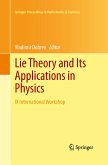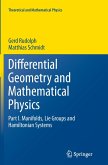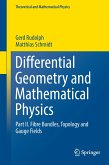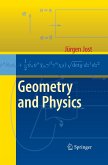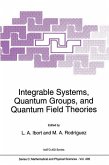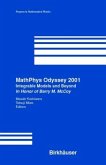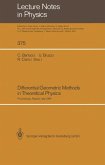This monograph provides the first up-to-date and self-contained presentation of a recently discovered mathematical structure-the Schrödinger-Virasoro algebra. Just as Poincaré invariance or conformal (Virasoro) invariance play a key rôle in understanding, respectively, elementary particles and two-dimensional equilibrium statistical physics, this algebra of non-relativistic conformal symmetries may be expected to apply itself naturally to the study of some models of non-equilibrium statistical physics, or more specifically in the context of recent developments related to the non-relativistic AdS/CFT correspondence.
The study of the structure of this infinite-dimensional Lie algebra touches upon topics as various as statistical physics, vertex algebras, Poisson geometry, integrable systems and supergeometry as well as representation theory, the cohomology of infinite-dimensional Lie algebras, and the spectral theory of Schrödinger operators.
The study of the structure of this infinite-dimensional Lie algebra touches upon topics as various as statistical physics, vertex algebras, Poisson geometry, integrable systems and supergeometry as well as representation theory, the cohomology of infinite-dimensional Lie algebras, and the spectral theory of Schrödinger operators.
From the reviews:
"This monograph presents an accurate and self-contained description of the so-called Schrödinger-Virasoro algebra ... . this book constitutes an excellent report on the actual status of research concerning the Schrödinger-Virasoro group and its applications in physics. Many of the results presented are actually recent research results, and the conclusions open new and interesting possibilities for further applications. This monograph will certainly become one of the canonical references in the subject." (Rutwig Campoamor-Stursberg, Zentralblatt MATH, Vol. 1237, 2012)
"This monograph presents an accurate and self-contained description of the so-called Schrödinger-Virasoro algebra ... . this book constitutes an excellent report on the actual status of research concerning the Schrödinger-Virasoro group and its applications in physics. Many of the results presented are actually recent research results, and the conclusions open new and interesting possibilities for further applications. This monograph will certainly become one of the canonical references in the subject." (Rutwig Campoamor-Stursberg, Zentralblatt MATH, Vol. 1237, 2012)


